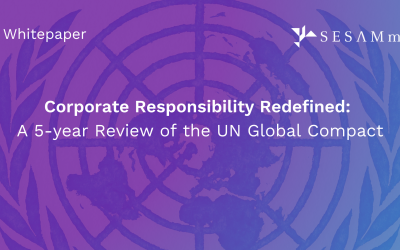Baringa and BlackRock enter long-term climate partnership
BlackRock, Inc. and Baringa Partners have announced a long-term climate partnership.

BlackRock, Inc. and Baringa Partners have announced a long-term climate partnership.
The partnership will see BlackRock acquire and integrate Baringa’s industry-leading Climate Change Scenario Model into BlackRock’s Aladdin Climate technology.
The new long-term partnership is a significant milestone for both firms, as they collaborate to set the standard for modelling the impacts of climate change and the transition to a low carbon economy on financial assets for investors, banks and other clients.
Sudhir Nair, Global Head of the Aladdin Business at BlackRock comments: “Investors and companies are increasingly recognising that climate risk presents investment risk. Through this partnership with Baringa, we are raising the industry bar for climate analytics and risk management tools, so clients can build and customise more sustainable portfolios."
Baringa and BlackRock will bring together their expertise to develop climate risk models underpinning Aladdin Climate, as well as innovating other climate analytics solutions.
Through the partnership, Baringa will use the core Aladdin Climate capabilities as part of its growing global consulting work in advising financial services, governments, regulatory bodies, and clients across all sectors on climate risk and developing net zero strategies.
Colin Preston, Global Head of Climate Solutions at Baringa said: “Climate change is the number one challenge and opportunity of our generation. Having developed the leading Climate Change Scenario Model, we are excited to partner with BlackRock to accelerate the adoption of this solution by organisations across the globe."
"The integration of Baringa’s Climate Change Scenario Model into BlackRock’s Aladdin platform will inform the reallocation of capital across the global economy, accelerating the transition to net zero.”
Find out more here.






_400_250_s_c1.png)